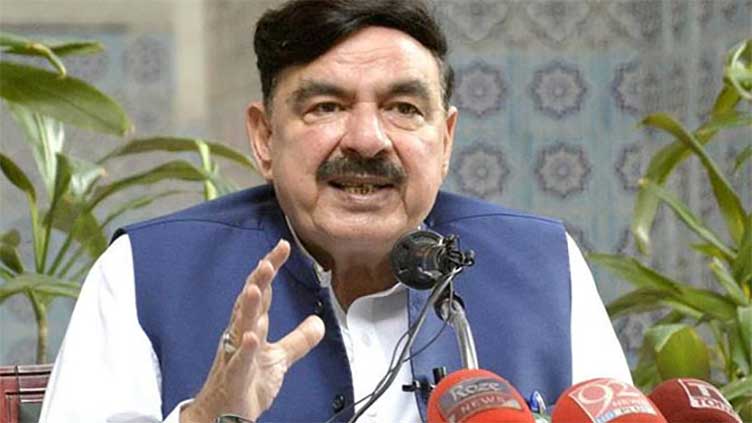Sh Rashid says Lal Haveli is a history no one can erase, not 'nine zero'

Pakistan
Sh Rashid says Lal Haveli is a history no one can erase, not 'nine zero'
RAWALPINDI (Dunya News) - Awami Muslim League (AML) chief and former interior minister Sheikh Rashid Ahmad on Monday said that Lal Haveli is a history that no one can erase, not ‘nine zero’.
In a statement on twitter, the AML chief said that the institutions have not found anything against him in the investigation of 16 ministries, and so now they have targeted the Lal Haveli of three marles.
The former interior minister has also challenged the eviction notice issued by the Evacuee Trust Property Board (ETPB) in the court on Monday.
In the tweet, he further reacted on the Pakistan Tehreek-e-Insaf (PTI) Chairman Imran Khan’s victory in the by-elections. He said Imran Khan winning six out of eight seats is a world record, adding that the ‘incompetent rulers’ are causing disgrace to themselves and giving us more recognition.
— Sheikh Rashid Ahmed (@ShkhRasheed) October 17, 2022
It is pertinent to mention here that the ETPB ordered Sheikh Rashid to vacate Lal Haveli within seven days.
According to the details, ETPB has issued an eviction notice to Sheikh Rashid and his brother Sheikh Siddique for occupying seven land units of ETPB including Lal Haveli.
This notice has been issued by ETPB Deputy Administrator Asif Khan, in which Sheikh Rashid and his brother have been told that show cause notices were issued to both of them, earlier but neither of them appeared nor the arrears of Lal Haveli were paid. After which they are legally evicted from the possession of Lal Haveli.
The deputy administrator said, "The Lal Haveli should be vacated within seven days, otherwise it will be vacated with the help of the police." Along with this, the deputy administrator has also written a letter to the police in which their help has been sought on October 19.
On this issue, former federal minister Sheikh Rashid said, “We have the right to Lal Haveli on legal and constitutional grounds.”

